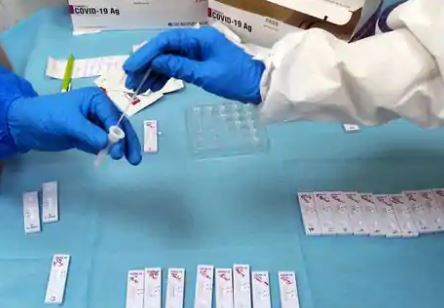Berhampur: In the conclusive study of the first phase of serial sero-survey conducted by ICMR-RMRC, the silk city reported that 31 per cent of all the persons have developed antibodies for the COVID-19 infection.
As per the Berhampur Municipal Corporation (BeMC), which assisted RMRC in the ongoing survey, a total 2,830 samples were collected at community level for the study in the first phase August 3 to 7. “It has been found that community level exposure to SARS-CoV-2 virus is relatively medium with a pooled Sero-prevalence of 31 per cent. This implies that large-scale transmission has not probably occurred in the city,” a BMC official said.
Also Read: Lokayukta probes MGNREGS lapses in Kaptipada
“From the survey, we found sero prevalence in the community at 31% which implies that one-third of the people had developed antibodies for the infection,” said RMRC Director, Sanghamitra Pati.
BeMC said that the survey had been conducted in five wards of the city. In some wards it has been observed that 70 per cent people have developed anti bodies in one ward and in another ward 60 per cent people have developed anti bodies. In another three wards about 50 % people have developed anti bodies in their body.
As per official sources, in a sero survey, blood serum of a group of individuals is collected to determine the presence of antibodies against an infection.
However, the civic body cautioned citizen against the infection and stated that large majority of the population is still at high risk of exposure unless preventive methods are not followed. “Every citizen has a role to play in the fight against COVID-19,” said Pati.
According to the RMRC director, the sero prevalence among high-risk groups was 23% and infection fatality rate was 0.02 %.The sero survey report corresponds to the COVID-19 infection status four weeks back, she added.
Pati further said people above 60 age, those having non-communicable diseases (NCDs) including diabetes, hypertension, immune-suppression and cancer, are among the high-risk group in the city.
PNN
